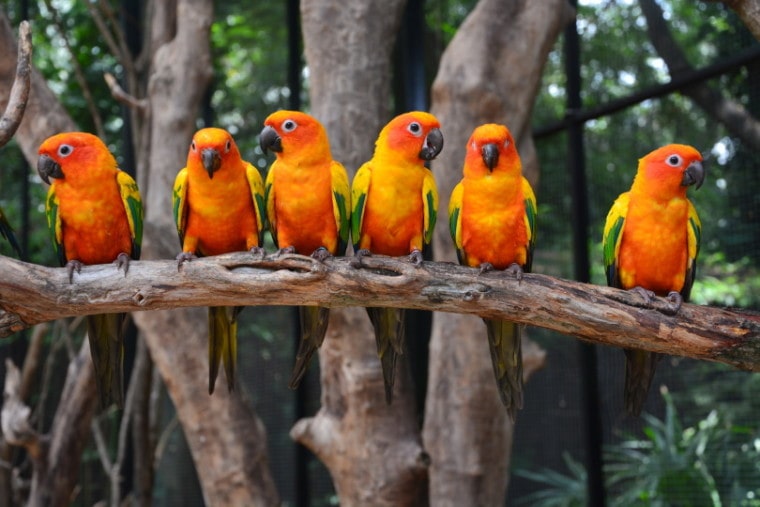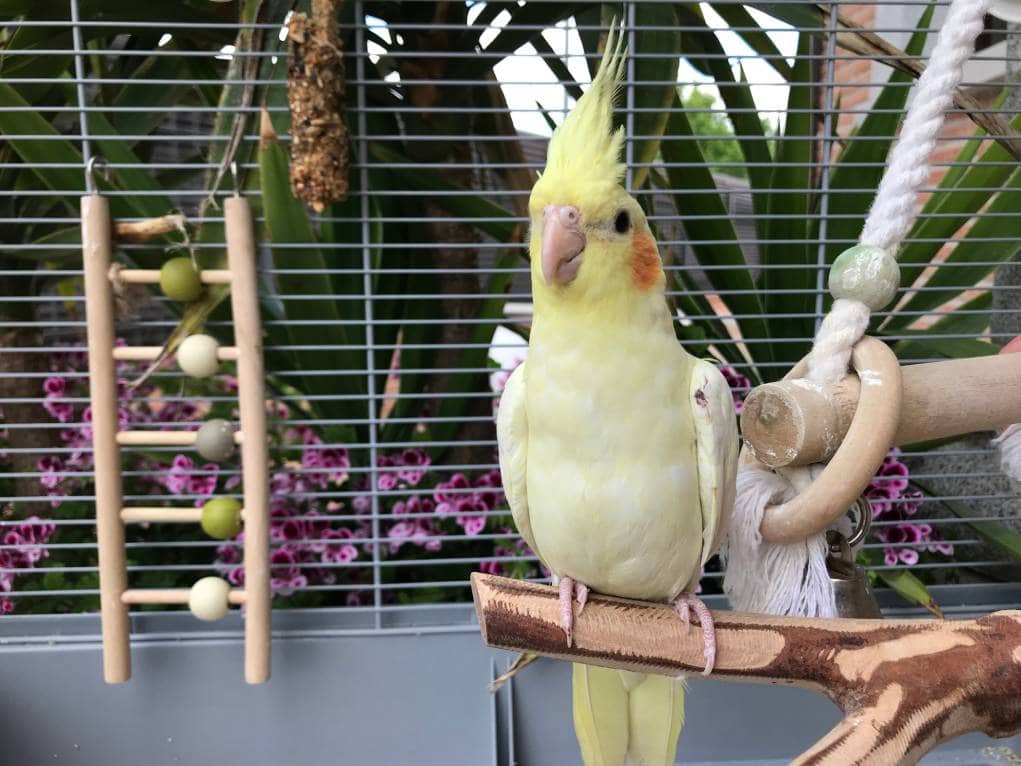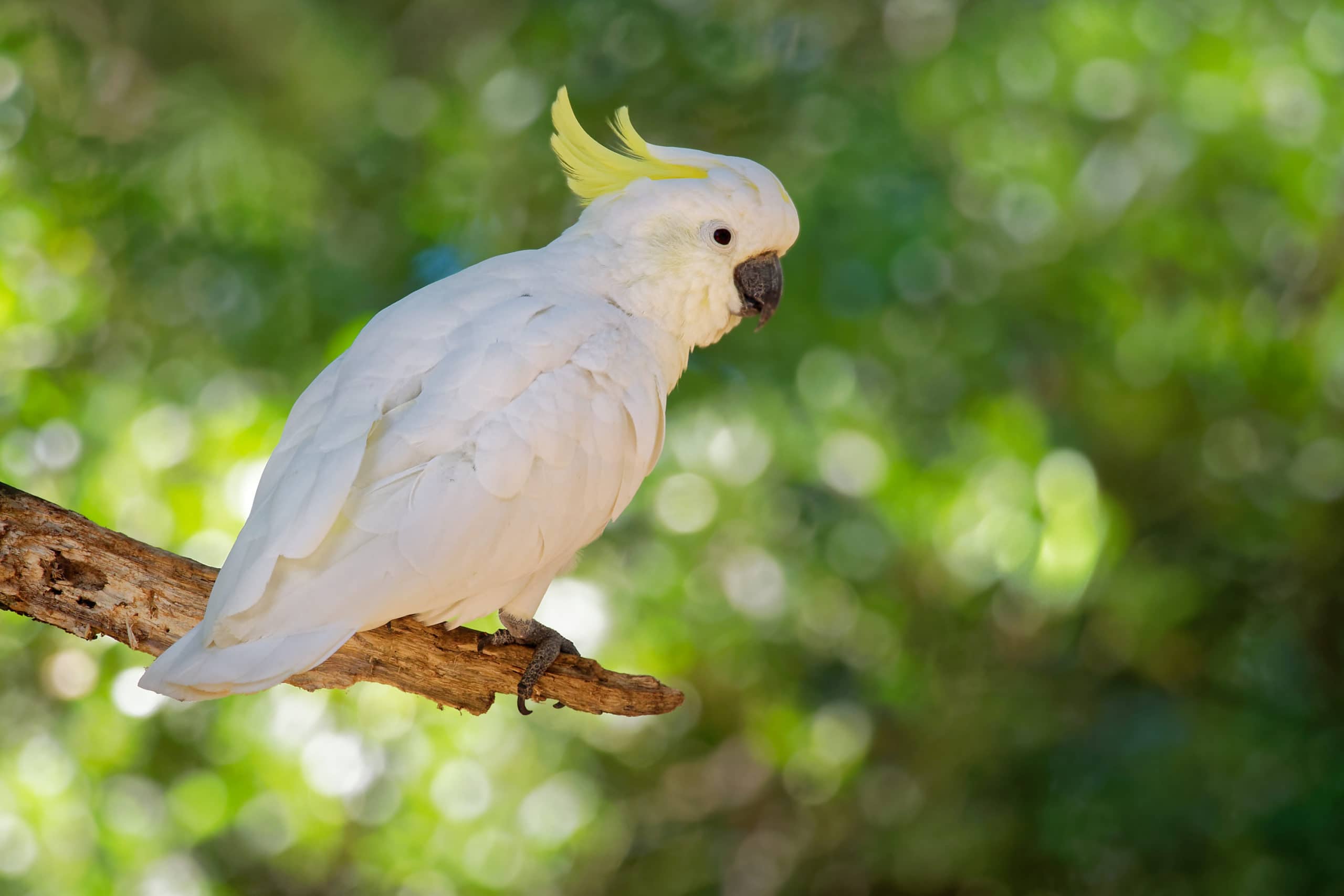
Purring is a common sound in the animal world. We all know that cats purr, but did you know that other animals like mongooses, bears, kangaroos, foxes, and guinea pigs also purr? It’s true!
It might come as an even bigger surprise to you that birds can also produce purring sounds. Though it is much rarer than a cat’s purr, a bird’s purr can symbolize a wide variety of feelings. If you’re a bird owner, you should familiarize yourself with all the vocalizations birds can make so you can tap into their emotions to know what they’re feeling in the moment.
Keep reading to learn everything you’ve ever wanted to know about birds and their ability to purr.
Do Birds Purr?
A bird’s purr does not sound like what you might at first expect. Unlike a cat’s low-toned and rumbly purr, a bird’s sound is more like a soft growl. It is not a very common sound, however. Instead, you’re much more likely to hear your bird chirping, whistling, chattering, or clicking its tongue.

Why Do Birds Purr?
A cat’s purr is often a sign of contentment, such as when they’re receiving pets, relaxing, or eating. The reason behind a bird’s purr, on the other hand, can vary.
Like cats, a bird will purr to show that it’s happy, but it can also purr as a sign of irritation. To know the reasoning behind your bird’s purring, you’ll need to take cues from the environment and its body language.
Irritated vs Contented Purrs
If your pet’s purring is accompanied by tapping feet, it could feel irritated. It may feel happy and fulfilled if it’s purring and wagging its tail feather. If it’s purring when you’re having a snuggle session, chances are it’s feeling quite content.
What Could Cause Irritated Purring?
Birds are creatures of habit, and any small change in their routine or environments could be grounds for a host of negative feelings. Environmental changes such as new people, a recent move, or loud noises can be quite upsetting for birds.
Some bird species, such as African grays and cockatoos, need a lot of attention. When they do not get the attention they crave from their humans, they can become bored and irritated, leading to purring out of discontentment.

Do All Birds Purr?
There are many different companion bird species, but can they all purr? Not all species can purr; even if you own one that can, you may never hear it make a purring sound.
Final Thoughts
Though it’s not very common to hear a bird purring, it is not entirely unheard of. Now that you know that it is possible and the reasons why your bird might start suddenly purring, you can determine what your next course of action is.
If your pet is content and happy, you don’t need to make any changes. Continue what you were already doing, as it is clear your bird loves you and its environment.
If your pet is purring because it’s annoyed, irritated, or upset, you need to determine what is causing these feelings so you can make a change to keep your pet happy.
See also:
Featured Image Credit: Butterfly Hunter, Shutterstock







